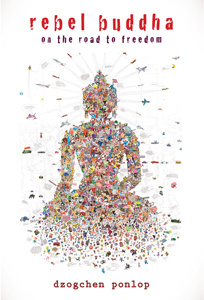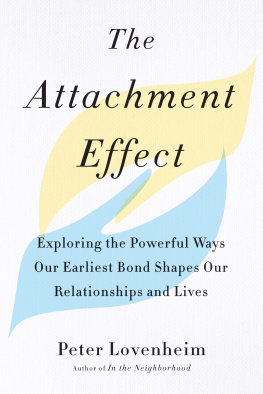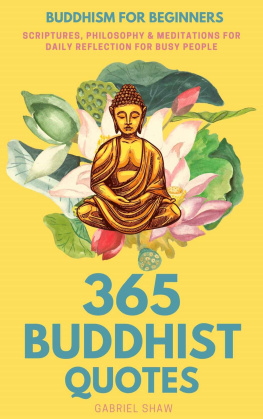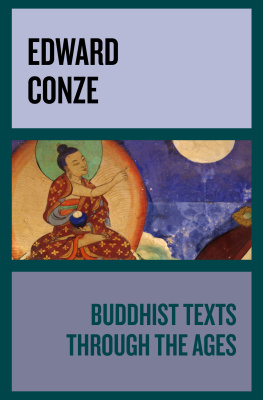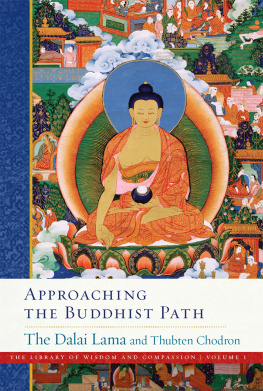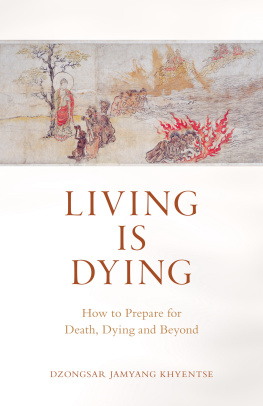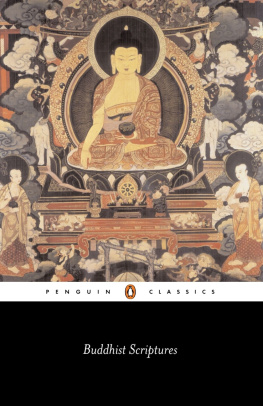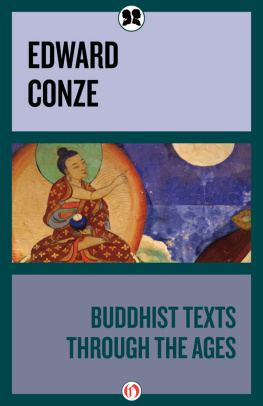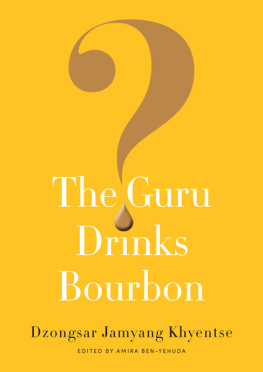Here at last is a crisp new voice in Tibetan Buddhism.... There is much food for thought in this short book for Buddhist students and for anyone interested in the ongoing adaptation of traditional Eastern wisdom into postmodern Western settings.
Publishers Weekly
A pleasant refresher or an excellent introduction to Buddhism, even for those who choose not to be Buddhists.
New Age Retailer
ABOUT THE BOOK
So you think youre a Buddhist? Think again. Tibetan Buddhist master Dzongsar Jamyang Khyentse, one of the most creative and innovative lamas teaching today, throws down the gauntlet to the Buddhist world, challenging common misconceptions, stereotypes, and fantasies. With wit and irony, Khysentse urges readers to move beyond the superficial trappings of Buddhismbeyond the romance with beads, incense, or exotic robesstraight to the heart of what the Buddha taught.
DZONGSAR JAMYANG KHYENTSE (KHYENTSE NORBU) is a Tibetan Buddhist lama who travels and teaches internationally and is also an award-winning filmmaker. He is the abbot of several monasteries in Asia and the spiritual director of meditation centers in Vancouver, San Francisco, Sydney, Hong Kong, and Taipei. He is also head of a Buddhist organization called Siddharthas Intent.
Sign up to learn more about our books and receive special offers from Shambhala Publications.

Or visit us online to sign up at shambhala.com/eshambhala.
What
Makes You
Not a Buddhist

Dzongsar Jamyang Khyentse

| Shambhala Boston &London 2011 |
Shambhala Publications, Inc.
Horticultural Hall
300 Massachusetts Avenue
Boston, Massachusetts 02115
www.shambhala.com
2007 by Dzongsar Jamyang Khyentse
Cover design by Gopa & Ted2, Inc.
All rights reserved. No part of this book may be reproduced in any form or by any means, electronic or mechanical, including photocopying, recording, or by any information storage and retrieval system, without permission in writing from the publisher.
The Library of Congress catalogues the previous edition of this book as follows:
Dzongshar Jamyang Khyentse, Rinpoche.
What makes you not a Buddhist/Dzongsar Jamyang Khyentse.
p. cm.
eISBN 978-0-8348-2316-7
ISBN 978-1-59030-406-8 (hardcover: alk. paper)
ISBN 978-1-59030-570-6 (paperback)
1. BuddhismDoctrines. I. Title.
BQ4132.D96 2007
294.342dc22
2006021536
For the son of Suddhodana, the prince of India,
Without whom I would still not know I am a wanderer
O nce, I was seated on a plane in the middle seat of the middle row on a trans-Atlantic flight, and the sympathetic man sitting next to me made an attempt to be friendly. Seeing my shaved head and maroon skirt, he gathered that I was a Buddhist. When the meal was served, the man considerately offered to order a vegetarian meal for me. Having correctly assumed that I was a Buddhist, he also assumed that I dont eat meat. That was the beginning of our chat. The flight was long, so to kill our boredom, we discussed Buddhism.
Over time I have come to realize that people often associate Buddhism and Buddhists with peace, meditation, and nonviolence. In fact many seem to think that saffron or maroon robes and a peaceful smile are all it takes to be a Buddhist. As a fanatical Buddhist myself, I must take pride in this reputation, particularly the nonviolent aspect of it, which is so rare in this age of war and violence, and especially religious violence. Throughout the history of humankind, religion seems to beget brutality. Even today religious-extremist violence dominates the news. Yet I think I can say with confidence that so far we Buddhists have not disgraced ourselves. Violence has never played a part in propagating Buddhism. However, as a trained Buddhist, I also feel a little discontented when Buddhism is associated with nothing beyond vegetarianism, nonviolence, peace, and meditation. Prince Siddhartha, who sacrificed all the comforts and luxuries of palace life, must have been searching for more than passivity and shrubbery when he set out to discover enlightenment.
Although essentially very simple, Buddhism cannot be easily explained. It is almost inconceivably complex, vast, and deep. Although it is nonreligious and nontheistic, its difficult to present Buddhism without sounding theoretical and religious. As Buddhism traveled to different parts of the world, the cultural characteristics it accumulated have made it even more complicated to decipher. Theistic trappings such as incense, bells, and multicolored hats can attract peoples attention, but at the same time they can be obstacles. People end up thinking that is all there is to Buddhism and are diverted from its essence.
Sometimes out of frustration that Siddharthas teachings have not caught on enough for my liking, and sometimes out of my own ambition, I entertain ideas of reforming Buddhism, making it easiermore straightforward and puritanical. It is devious and misguided to imagine (as I sometimes do) simplifying Buddhism into defined, calculated practices like meditating three times a day, adhering to certain dress codes, and holding certain ideological beliefs, such as that the whole world must be converted to Buddhism. If we could promise that such practices would provide immediate, tangible results, I think there would be more Buddhists in the world. But when I recover from these fantasies (which I rarely do), my sober mind warns me that a world of people calling themselves Buddhists would not necessarily be a better world.
Many people mistakenly think that Buddha is the God of Buddhism; even some people in commonly recognized Buddhist countries such as Korea, Japan, and Bhutan have this theistic approach to the Buddha and Buddhism. This is why throughout this book we use the name Siddhartha and Buddha interchangeably, to remind people that Buddha was just a man and that this man became Buddha.
It is understandable that some people might think that Buddhists are followers of this external man named Buddha. However, Buddha himself pointed out that we should not venerate a person but rather the wisdom that person teaches. Similarly, it is taken for granted that reincarnation and karma are the most essential beliefs of Buddhism. There are numerous other gross misconceptions. For example, Tibetan Buddhism is sometimes referred to as lamaism, and Zen is not even considered Buddhism in some cases. Those people who are slightly more informed, yet still misguided, may use words such as emptiness and nirvana without understanding their meaning.
When a conversation arises like the one with my seatmate on the plane, a non-Buddhist may casually ask, What makes someone a Buddhist? That is the hardest question to answer. If the person has a genuine interest, the complete answer does not make for light dinner conversation, and generalizations can lead to misunderstanding. Suppose that you give them the true answer, the answer that points to the very foundation of this 2,500-year-old tradition.
One is a Buddhist if he or she accepts the following four truths:
All compounded things are impermanent.
All emotions are pain.
All things have no inherent existence.
Nirvana is beyond concepts.
These four statements, spoken by the Buddha himself, are known as the four seals. Traditionally, seal means something like a hallmark that confirms authenticity. For the sake of simplicity and flow we will refer to these statements herein as both seals and truths, not to be confused with Buddhisms four noble truths, which pertain solely to aspects of suffering. Even though the four seals are believed to encompass all of Buddhism, people dont seem to want to hear about them. Without further explanation they serve only to dampen spirits and fail to inspire further interest in many cases. The topic of conversation changes and thats the end of it.
Next page
